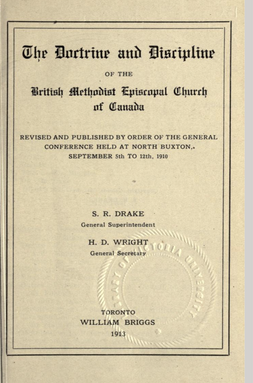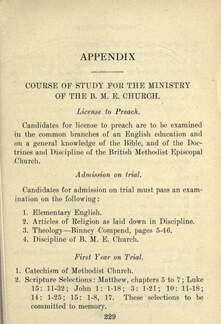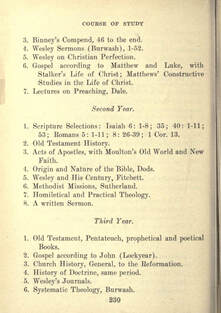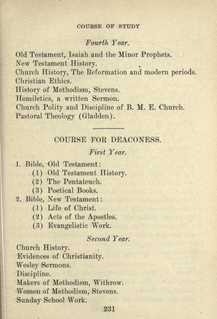|
My blog posts revolve around my interests and vocation as a historian: the intersection of history and contemporary church life, the intersection of history and contemporary politics, serendipitous discoveries in archives or on research trips, publications and research projects, upcoming conferences, and speaking engagements.
I sometimes blog for two other organizations, the Canadian Baptist Historical Society and the Centre for Post-Christendom Studies. The views expressed in these blogs represent the views of the authors, and not necessarily those of any organizations with which they are associated. |
|
This blog (and two that follow) relates to a few recent serendipitous discoveries. Right now I am working on a project on Black Baptists and Methodists in Canada during the First World War. As I was sifting through primary sources I found a few interesting items related to theological education (a subject completely unrelated to my current project). I have recently taken up an interest in the history of theological education, and, in particular, how pastors are trained for their roles in the churches. The following are some brief images from a manual for doctrine and discipline published in 1913 by the British Methodist Episcopal Church of Canada (a Canadian brand of Black Methodism). The book itself is a significant text, with 265 pages (click here for full text). In good Methodist fashion it is very methodical and detailed and covers a wide variety of areas of church life. What follows are a few pages that outline the four-year training for its ministers. As you can see, the educational expectations for Black Methodist ministers in Canada was quite extensive and impressive. These few pages provide a glimpse into an educational model of education that has fascinating similarities with the way theological education is carried out by today's seminaries, but also reveals some interesting differences.
These few pages are a fascinating glimpse onto the training of Black Methodist candidates for ministry in Canada. It will take further research to determine if those requirements mirrored those of their White Methodist co-religionists, and where and how the Black candidates were to receive that education.
If you want the really big picture of theological education in the history of Christianity, see Justo Gonzalez, The History of Theological Education (2015).
0 Comments
Leave a Reply. |
Archives
May 2024
|




 RSS Feed
RSS Feed
